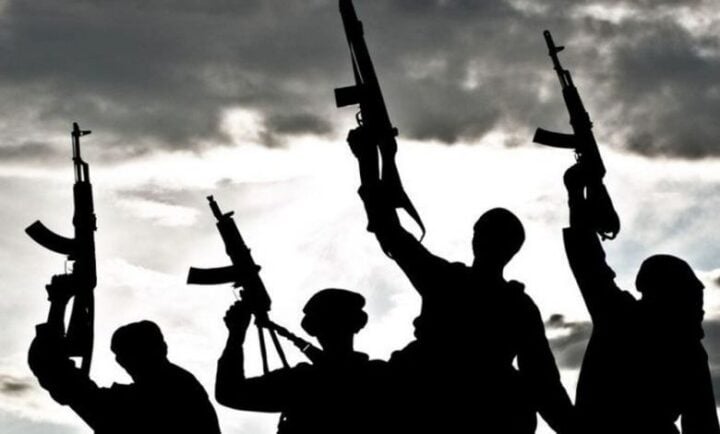BY ANA’AYI JENNIFER DANGBANA
Democracy in the African continent has suffered major setbacks over the last few decades. The coup trends across Sahel West Africa; Mali, Burkina Faso, Guinea, and Niger in the last four years have not only destabilised local democracies but also burdened regional blocs with protecting democratic integrity across the continent.
With 21 African countries scheduled to conduct both presidential and legislative elections this year, the world is watching with keen interest the course of Africa’s democratic future.
Despite the impediments Senegal encountered in the build-up to its recent presidential election, the country not only marked history for democratic restoration but also serves as a light for democratic progress in the region. The Senegalese people once again retained their place as one of Africa’s most stable democracies, making it a continuum of peaceful transfer of power since gaining independence from France in 1960.
Advertisement
It is remarkable that the country made a comeback and defended its democracy in the face of the threats that the ambitions of former President Macky Sall posed.
The third-term effect: Senegal’s struggle
Among the many accomplishments of former President Sall was his transformation of the Senegalese economy into one of sub-Saharan Africa’s fastest-growing economies. Despite his successes, Sall’s final years in office were marred by political repression, intimidation, and human rights abuses, with heavy clampdowns on press freedom and freedom of speech which culminated in heating the polity in the wake of the presidential elections that was initially scheduled to hold in February 2024.
Advertisement
It is not uncommon for sitting presidents in Africa to try to manipulate and fiddle with constitutional provisions to extend their stay in power. The same has been true for Senegal, who is not also new to such machinations. Abdoulaye Wade, Sall’s predecessor despite constitutionally introducing two-term limits, later sought a third term and got the support of the constitutional court, which ruled controversially in his favour.
Macky Sall emerged as a strong opposition in the presidential elections of 2012 and was instrumental in fighting against Wade’s possibility of a third term and advocated for upholding term limits, promising constitutional reforms. 12 years after serving his democratically elected terms in office, Sall tried to toe the same line as shown in his attempt to extend his term, and unconstitutionally postponed the polls that would usher in a new president for Senegal.
On February 3, 2024, just three weeks before the scheduled February 25, 2024 election, Sall announced a postponement of the polls and raised a bill for a new date to December 15, 2024, which was approved by the national assembly, effectively extending his term in office by 10 months. This move sparked outrage resulting in violent protests and arbitrary arrests of opposition and protesters within the country, with massive resistance and criticisms from both local and international institutions. It was the first time Senegal ever witnessed an election delay. Religious leaders voiced disapproval, and youths and civil societies mobilised, all demanding adherence to the law.
Sall’s candidate, Amadou Ba of the Alliance pour la République (APR) and the ruling coalition Benno Bokk Yakaar (BBY), who stepped down as prime minister to contest, who was also a former minister of foreign affairs, minister of economy and finance, and director general of Taxes and Domains was widely expected to win the polls. Still, Sall’s attempt to delay the polls, however, garnered more support for the Patriots du Senegal Party (PASTEF), inadvertently contributing to the rise of tax inspector Bassirou Diomaye Faye.
Advertisement
A win for democracy, a win for all
In a critical moment for democracy in Africa, the Senegal Constitutional Court stood as the stalwart defender of electoral integrity and democratic backsliding, reaffirming the foundational principles of democratic governance. On February 15, 2024, the court delivered its ruling, overturning Macky Sall’s attempt to postpone the elections, deeming it both illegal and unconstitutional. The mandate was clear: the elections must be conducted before the expiration of Sall’s official term in office on April 2, 2024.
The Senegal presidential elections which took place on March 24, 2024, took an unprecedented turn in the nation’s electoral history, with the victory of an opposition party.
Senegal uses a two-round voting system requiring a majority vote for the winning candidate which means the final results remain uncertain until the final tallies. Remarkably, while the first-round vote counting was still ongoing, Amadou Ba, Sall’s candidate, conceded defeat to Bassirou Diomaye Faye, the chosen candidate of the controversial opposition of the Sall administration, Ousmane Sonko of the Patriots du Senegal Party (PASTEF), based on preliminary results. This act of statesmanship was mirrored by six other leading political opposition candidates, including Mahammed Boun Abdallah, Dakar Khalifa Sall, Anta Babacar Ngom, Idrissa Seck, Diathe Fall, and Aly Ngouille Ndiaye who all conceded defeat to Faye.
On April 2, 2024, His Excellency Bassirou Diomaye Faye, aged 44, was inaugurated as Senegal’s fifth President, etching his name as the youngest democratically elected president in West Africa and one of the youngest presidents in Africa, a feat which he achieved with a mere 10-day campaign window post-prison. President Faye secured a decisive victory in the first-round voting with 54.28% of the total vote cast.
Advertisement
The high turnout of voters has received applause from election observers, with a turnout of over 61% of registered voters, despite being less than the 66% voter turnout from the 2019 elections. The turnout in the just concluded elections was proof of the Senegalese people’s commitment to democracy, regardless of the hurdles of the weeks preceding the elections. Also commendable is the conduct of the election umpire, the Autonomous National Electoral Commission, which has been described as a transparent, and efficiently organised electoral process by observers. The conduct of the electoral commission largely contributed to the wide acceptance of final results as credible amidst all of the pre-election tumult.
“Diomaye is Sonko”: From prison to presidency
Advertisement
Ousmane Sonko, leader of the PASTEF and Mayor of Ziguinchor, enjoys significant popularity among Senegalese youths for his bold criticisms against the corruption of the Sall administration despite working as a tax inspector for the government. His arrest led to widespread protests which was perceived as an attempt by Sall to take down his opposition — a repeat of the 2019 presidential elections where two of his major oppositions were barred from contesting at the presidential polls on account of previous corruption charges.
Following Sonko’s arrest and imprisonment in June 2023 the Supreme Court on January 4, 2024, confirmed his ineligibility to contest in the presidential polls. Sonko’s arrest led to Faye taking over PASTEF leadership, championing the party’s movement and also Sonko’s endorsement of Faye as his candidate for the presidential poll.
Advertisement
Faye’s win was as much a result of a protest vote against former President Macky Sall as it was a cry for change championed by Sonko’s PASTEF as history has shown that where there is a deep need for change, a political outsider may be preferred and even voted in, over maintaining the status quo.
Policy Direction: What do the Senegalese people expect to see in Faye’s administration?
Advertisement
After the poll comes the question of governance.
Faye and Sonko, both former government tax inspectors, now president and prime minister with limited or no government experience, being the highest authority figures presiding over the affairs of the country, makes the future of Senegal’s socio-economic development uncertain and difficult to predict.
With Senegal’s current shift into a new phase of its economic development, as an emerging oil and gas-producing nation, Faye and Sonko face the daunting task of ensuring the new economy benefits the general populace, curbs the high unemployment rate, and ensures equitable distribution of resources.
Faye’s policy direction, particularly in his first 100 days as president, is critical to the success of his tenure. In his inaugural speech which summarises his vision for the country, Faye remarked that the results of the elections reflect a deep desire for systemic change, highlighting his acknowledgement of the weighty burden and responsibilities inherent in the presidential office.
The President emphasized his commitment to promoting peace and national unity, addressing the pressing issues that have plagued the country in recent months. The breakdown of peace in Senegal since 2021, marked by a surge in political protests under Sall’s administration, necessitates a concerted effort to restore stability. More so, Senegal shares a border with Mali, a nation grappling with a history of violent extremism. There are growing concerns about the infiltration of militant group, Katibat Serma in border communities in eastern Senegal. This poses a grave threat to Senegal’s internal security. As aptly articulated by the president, “Senegal’s most precious resource is the stability of the country.”
The president also affirmed his commitment to strengthening democratic institutions in the country, ensuring an independent justice system, rule of law, and balanced power is maintained.
The issues of a high unemployment rate and growing social inequity which were focal points of criticism against Sall’s administration by PASTEF, remain a principal concern for the Senegalese youths. Despite Senegal’s per capita growth maintaining a continuous increase for over six years consecutively, Statista reports youth unemployment at 2.96% in its 2024 publication. President Faye, speaking, reiterated his focus on ensuring economic and social progress in the country.
President Faye expressed his openness to forging and building partnerships with other sovereign nations, centred on the interests of Senegalese citizens. This serves to reassure investors of Senegal’s commitment and reliability in collaborative development. President Faye must focus on mobilising external investments to expand economic opportunities for the youth.
Lessons for Africa
Senegal’s election marked not only a win for democracy but also a win for the African continent. A remarkable factor in the outcome of Senegal’s elections is the resolute commitment of the people and institutions to holding public officials accountable. The Constitution Council, composed of members appointed by the president, determinedly defended against any unconstitutional delays in the electoral process, highlighting the imperative for state systems and institutions to maintain their independence in the performance of their mandates.
Senegal stands out for its collective respect for democratic principles and the determination to challenge any status quo contradicting these values. The youth, in particular, mobilized, staging relentless protests against unconstitutional postponements, and campaigning for their preferred candidates such that it can be said to have been a youth-led election. This shows the transformative potential of youth engagement in democratic processes.
The high voter turnout also stresses the role of electoral participation in shaping the overall outcome and acceptance of electoral results.
A resilient democracy is characterized by strong political opposition as it provides a system of checks and balances, promotes healthy political competition necessary for development, and protects against the consolidation of power by a few. The peaceful transfer of power following the Senegal elections is a reflection of the maturity and stability of the country’s democratic institutions. Such peaceful transitions not only strengthen democratic norms but also establish positive precedents for the continuity of governance – an important lesson for the African continent.
Dangbana works with the Africa Division of Yiaga Africa, a civil society organization that focuses on democratic governance in Nigeria and Africa.
Views expressed by contributors are strictly personal and not of TheCable.
Add a comment






